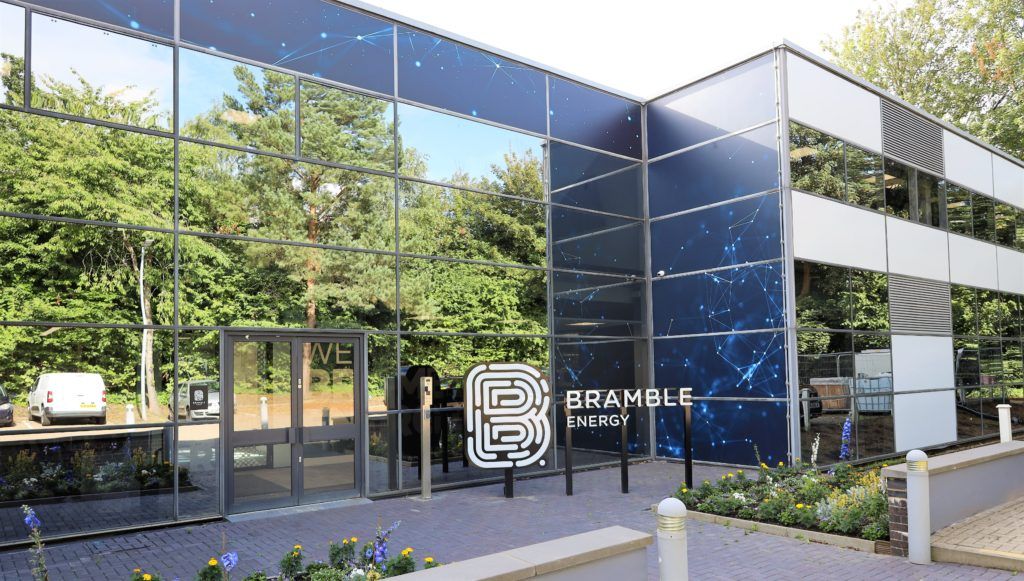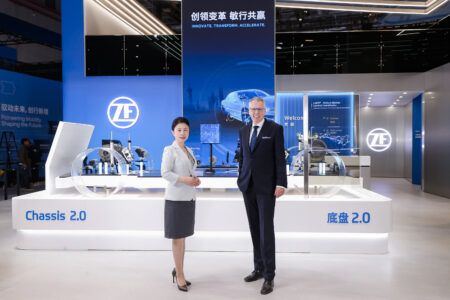Fuel cell technology company Bramble Energy has announced the opening of its new state-of-the-art headquarters in Crawley, West Sussex. The expansive new facility, which includes a hydrogen innovation and development hub, is a multi-million-pound investment for the company which launched in 2016. The facility, Atrium Court, spans almost 34,000 square feet, more than three times the size of its previous premises. The facility is prepared to accommodate Bramble Energy’s growing workforce, which has increased tenfold from just eight staff in 2020 to over 80 today.
Founded as a university spin-out, then developed in the garage of co-founder and CEO Dr Tom Mason, Bramble Energy has rapidly gained momentum with its innovative fuel cell technology, which is based upon cutting-edge printed circuit board (PCB) technology. The larger facility will accommodate Bramble Energy’s projected expansion and support the scale up of its technology.
At the heart of Atrium Court lies the Hydrogen Innovation Hub, a research, development, and testing facility dedicated to hydrogen fuel cells, electrolysers, and sensors. Concepts will be taken through from the R&D phase all the way up to production-ready technology, as well as test fuel cells producing single digit Watts up to multi kW sizes required to service the heaviest of mobility industries.
“We are extremely proud to move into our new, state-of-the-art headquarters, which represents a major milestone for Bramble Energy,” said Dr Tom Mason, Bramble Energy co-founder and CEO. “Our success and growth have been phenomenal in a very short amount of time, which is in no small part to our technology but also the support we have received and having a talented and dedicated team.”
Bramble Energy’s breakthrough innovation in hydrogen fuel cell technology and design utilising its PCB-X Platform, is solving the key challenges in the production of hydrogen fuel cells and accelerating the hydrogen mobility industry with the world’s first printed circuit board (PCB) hydrogen fuel cell. The patent-protected solution means it can design, manufacture, test, and ship a PCB fuel cell in a matter of weeks, at a game-changing significantly lower cost than the typical industry standard.





